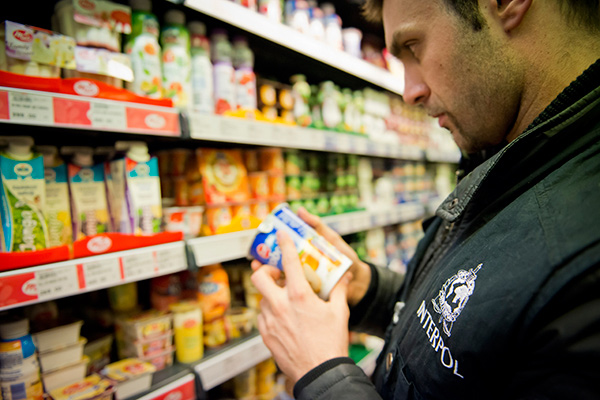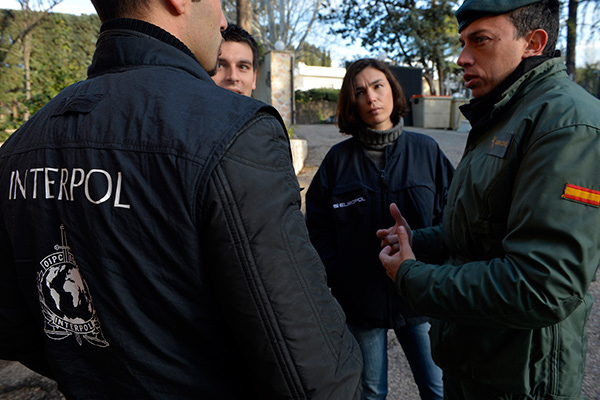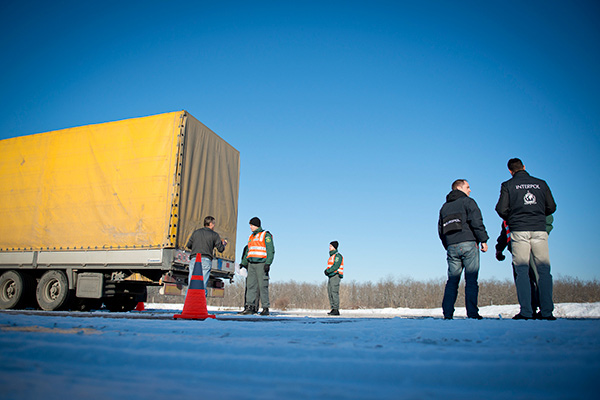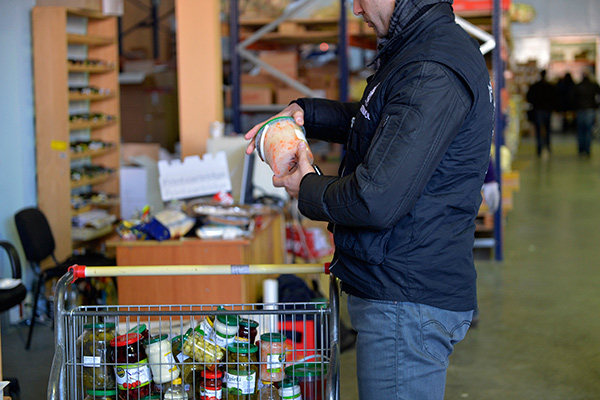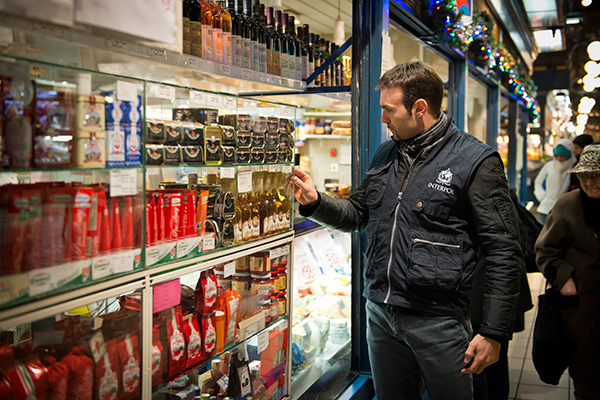More than 1,200 tonnes of fake or substandard food and nearly 430,000 litres of counterfeit drinks have been seized in an INTERPOL-Europol coordinated operation across 33 countries in the Americas, Asia and Europe.
Targeting the organized crime networks behind the illicit trade in counterfeit and unregulated food and drink, Operation Opson III led to the recovery of more than 131,000 litres of oil and vinegar, more than 80,000 biscuits and chocolate bars, 20 tons of spices and condiments, 186 tons of cereals, 45 tons of dairy products and 42 litres of honey. In total, some 96 people were arrested or detained with investigations continuing in many countries.
The operation, conducted throughout December 2013 and January 2014, and supported for the first time by the European Commission’s Directorate General for Health and Consumers, involved police, customs, national food regulatory bodies and partners from the private sector, with checks carried out at shops, markets, airports, seaports and private homes.
In Italy, an organized crime network behind the manufacture and distribution of fake champagne was discovered. Material to prepare 60,000 bottles including fake labels were seized following raids on two sites, with three people arrested and 24 others reported to authorities.
“Most people would be surprised at the everyday foods and drink which are being counterfeited, and the volume of seizures shows that this is a serious global problem,” said Michael Ellis, head of INTERPOL’s Trafficking in Illicit Goods and Counterfeiting unit, which coordinated activities between the world police body’s participating countries across the globe. “INTERPOL is committed to turning back this threat to public health and safety by organized criminal networks which are making millions in profits. These can then be channelled into other illicit activity such as human and drug trafficking,” added Mr Ellis.
Europol’s Intellectual Property Crime Team coordinated Opson III within the EU, providing operational support to EU countries and third parties with a Europol agreement. Chris Vansteenkiste, Project Manager of the team, explains: “We see clear improvements in the fight against food fraud, especially thanks to the greater involvement of relevant private and public stakeholders. It is important to keep the focus on this area of crime since the more information we collect, the more we realize that this illicit trade is managed and run by organized crime groups.”
In Spain, 24 people were detained for illegal work and immigration offences after 4.5 tons of snails illegally taken from woods and fields were recovered. In Bangkok, Royal Thai Police raided a warehouse and recovered more than 270 bottles of fake whiskey, as well as forged stickers, labels and packaging. Officials in the Philippines seized nearly 150,000 fake stock cubes, and French police identified and shut down an illegal abattoir on the outskirts of Paris.
Fish and seafood represented the largest category of foodstuffs seized. Some 685 tons were recovered for offences including poor preservation, being incorrectly labelled and one seizure of 484,000 kilograms of yellow fin tuna which did not have the required documents for traceability.
Among the key aims of Opson (meaning food in ancient Greek), the third such operation since 2011, are the identification of the organized criminal networks behind the trafficking; development of practical cooperation between the involved law enforcement, food and drug agencies and private companies; and to raise awareness of the dangers posed by counterfeit and substandard foods.
Countries which took part in Opson III: Austria, Belarus, Belgium, Bulgaria, Chile, Colombia, Côte d’Ivoire, Czech Republic, Denmark, Finland, Former Yugoslav Republic of Macedonia, France, Germany, Greece, Hungary, Iceland, Italy, Latvia, Luxembourg, The Netherlands, Peru, Philippines, Portugal, Qatar, Romania, South Korea, Sweden, Spain, Thailand, Turkey, United Kingdom, USA and Vietnam.






